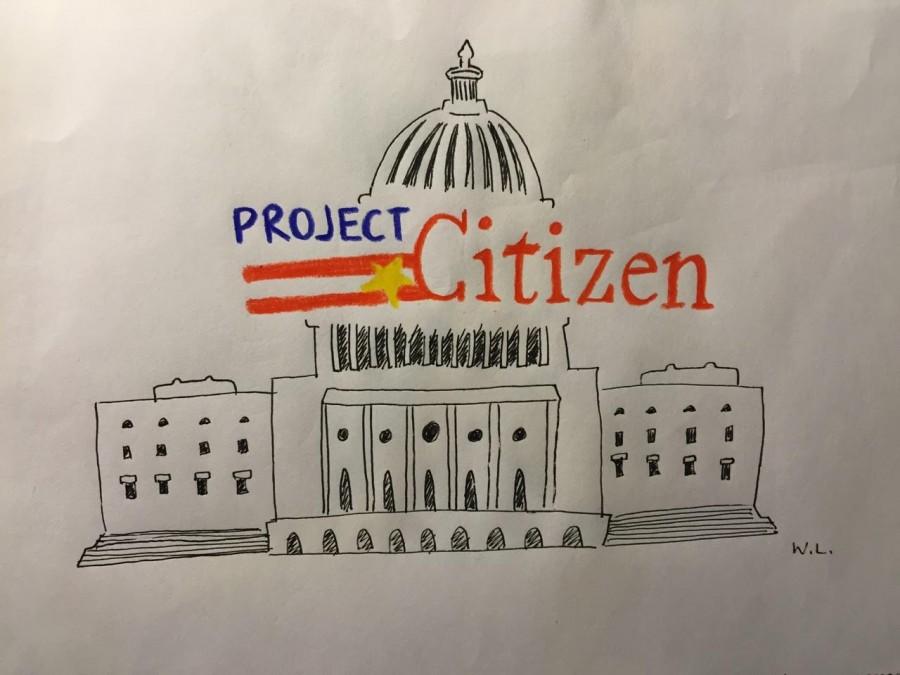Improving Political Awareness, One Facebook Survey at a Time
February 22, 2016
Sitting in Social Studies classes, memorizing fact after tedious fact about battles and war heroes, student often wonder what they can do to affect history themselves. With Project Citizen, juniors enrolled in Honors American Government are taking a step towards altering history for Basking Ridge, Somerset County, and even the whole of New Jersey.
Mimicking the Center for Civic Education’s Project Citizen program, which encourages active participation in government and promotes awareness of democratic policy, juniors have dedicated their entire year to creating their own versions of Project Citizen. Students have spent countless hours in creating this project, in which they propose solutions to significant issues that affect the community.
Throughout the school year, students progress through their projects in separate parts; the end goal is to encourage them to actively participate in local and state politics. After discovering the issues within their own communities, students devise plans to alleviate these problems. At the end of the year, the classes plan to submit their best projects to a state showcase, where policy makers will evaluate their proposals and choose the most appealing solution.
The students start off the school year with the research portion of the project, proposing three ideas that would ameliorate their local policies and environments. After gathering in small groups of five to six people with similar ideas, students conduct individual research and then compile their data with their group-mates. As many students have noticed in the past couple months, this is where the plethora of Facebook surveys stems from, as groups need to gather information not only from the internet and its databases, but also from their Ridge peers.
The following step of the project is to pinpoint the exact problem. Students create solutions that would not only effectively address the issue, but would also keep the people’s best interests at hand. In this step, they evaluate their solutions and policy in order to compose the best strategy to resolve their problems. For this particular project, the best strategy requires their solutions to be effective and reasonable enough to incentivize policy makers to select their plan to implement.
Last week, students received the third step of their project: the synthesis of their problem and solution. In this final step, students will need to evaluate alternate solutions and possible opposition to their strategies. Once they finalize their plan of action, students can assemble their final proposal. In fact, juniors are in the midst of creating their own websites to showcase their solutions and the effects on their community to a greater audience than just their Social Studies classes!
Though most students agree that this project allows for more awareness on local government policies, some argue that Project Citizen still does not enable them to truly participate in local or state politics. A student in Honors U.S. Government, Carolyn Wang ’17 asserts, “[The project] helps us become aware [of] issues in New Jersey or Ridge High School. I think it’d be more helpful if the projects could actually help and change our school policies.”
Although only the Honors U.S. Government classes conduct this experiment, the effect of Project Citizen is wide-reaching and informative for the entire community, especially with the vehicles of social media and online forums. After taking a Project Citizen survey on cultural awareness, Ryhan Moghe ’16 chirps, “I believe that the Project Citizen assignment for Honors Gov. classes helps students become more aware of the political and cultural issues in America today, and helps develop the problem solving skills needed to combat those issues.”
Ultimately, Project Citizen aims to promote political awareness in the Ridge High School community for those participating in the project and for those taking Facebook surveys alike. Hopefully, students will be able to create policies that enrich our community on a school, town, and state level.


william schmidt • Feb 29, 2016 at 2:21 pm
I think that social media being as big as it is can really help get youth voters involved in politics
Cate Longino • Feb 29, 2016 at 12:06 pm
I think that it is really interesting how they are incorporating an interactive activity into learning about government. Hopefully this will help out with political awareness!